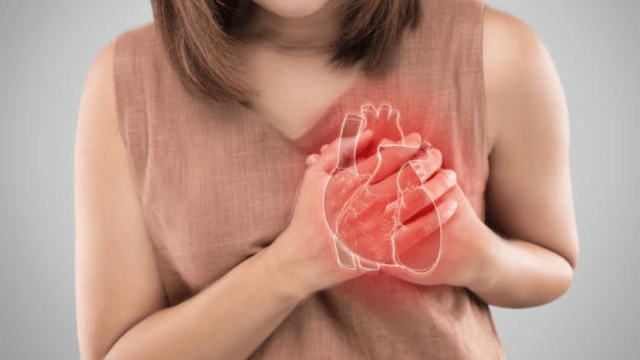To prevent sudden cardiac arrests in gym-goers, Punjab govt rolls out advisory: PGI doctor explains risk factors for the young
Increasingly, sudden cardiac arrest is affecting people under 40, including students, athletes, professionals and homemakers
 Heart disease is no longer restricted to the elderly or those with known chronic illnesses.
Heart disease is no longer restricted to the elderly or those with known chronic illnesses.With the rising number of cases of cardiac arrests during gym workouts and sporting activities, Punjab Health Minister Dr Balbir Singh recently issued a health advisory titled, ‘Prevention of Sudden Cardiac Arrest Among Gym Goers and Sportspersons.’
The advisory flagged undiagnosed medical conditions, unregulated dietary choices, use of unchecked, unsafe, and quick-result supplements, energy drinks and steroid-based performance enhancers as risks for heart health. Endorsing this preventive approach, Prof Rajesh Vijayvergiya, Department of Cardiology, Advanced Cardiac Centre, PGIMER, Chandigarh, describes the recent surge in sudden cardiac arrests as a silent threat. “While heart disease has long been a leading cause of mortality globally, sudden cardiac arrests among young and middle-aged adults call for urgent public awareness and action,” he says.
What’s the startling shift in heart disease?
Heart disease is no longer restricted to the elderly or those with known chronic illnesses. Increasingly, it is affecting people under 40, including students, athletes, professionals and homemakers. There are increasing cases of Sudden Cardiac Arrest (SCA), which occurs when the heart suddenly stops beating due to an electrical malfunction, resulting in the immediate cessation of blood flow to the brain and vital organs. It can cause death within minutes if Cardio-Pulmonary Resuscitation (CPR) is not initiated promptly. In contrast, a heart attack is caused by a blockage in the coronary arteries that reduces blood flow to the heart muscle.
Why is sudden cardiac death rising among the young?
Underlying coronary heart disease often triggers a heart attack when under stress. This happens in about one-third of under-40 people. The rest may have diseases of cardiac muscle known as cardiomyopathy or specific electrical impulse abnormalities, causing arrhythmias or irregular heartbeats. Triggers such as intense physical activity, dehydration, electrolyte imbalance and substance use — stimulants, anabolic steroids, gym supplements, recreational drugs, or even excessive caffeine — further elevate the risk.
Lifestyle factors like stress, sleep deprivation, smoking, uncontrolled hypertension and undiagnosed diabetes also raise cardiac risks for the young. Obesity can result in structural changes of the heart, chronic inflammation and myocardial fibrosis, all of which predispose the heart to fatal arrhythmias.
Has COVID-19 and vaccines impacted the cardiovascular system?
Emerging evidence has shown that COVID-19 infection, even in mild or asymptomatic cases, can lead to myocarditis or inflammation of the heart muscle, which increases the risk of arrhythmias and sudden cardiac death. This risk persists even after recovery, particularly among young individuals who resume intense physical activity. While COVID-19 vaccines have played a critical role in reducing severe illness and mortality, some rare cardiac side effects have been reported, particularly vaccine-associated myocarditis, predominantly in young males who took mRNA-based vaccines. Notably, the overall incidence of vaccine-induced myocarditis remains significantly lower than cardiac complications caused by COVID-19 itself. Vaccine gains outweigh the risks.
The dangers of weight-loss and anti-ageing products
Stay away from unregulated slimming pills or herbal supplements. These may contain banned substances like sibutramine or potent stimulants such as ephedrine and ephedra, which can dangerously elevate heart rate and blood pressure, sometimes leading to sudden cardiac arrest, especially during physical exertion.
Anti-ageing therapies, though popular, lack comprehensive safety data. Many such drugs, including glutathione, growth hormones, testosterone, and nicotinamide adenine dinucleotide (NAD⁺) boosters are used off-label or in unregulated settings. These compounds may influence cardiovascular parameters by increasing blood pressure, thickening blood or accelerating metabolism, which can lead to arrhythmias or thrombotic events.
Can you experience symptoms before sudden cardiac arrest?
Before a sudden cardiac arrest, the body often sends subtle warnings like dizziness or fainting, shortness of breath, chest discomfort or tightness at rest or during exertion and heart palpitations. Get tested. With the out-of-hospital cardiac arrest survival rate under 10%, early CPR can double or triple survival chances. Everybody should be trained in CPR. Besides, defibrillators should be installed in schools, gyms, offices and public places. All fitness centres and sports clubs must mandate pre-participation cardiac evaluation.




- 01
- 02
- 03
- 04
- 05



























